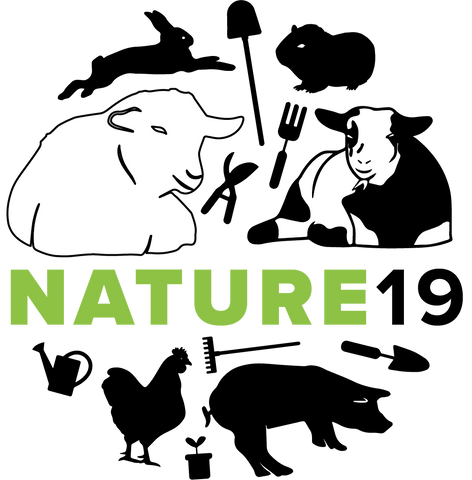
Nature 19 is a specialist facility for young people with learning difficulties, social communication needs and Autism.
We aim to enable our young people to flourish and build their independence and gain transferable skills for life.
-

Animal Care
Providing essentials like food, water, and hay to ensure the animals are well-nourished and comfortable, giving them extra hugs at any time!
-

Cleaning
Cleaning animal enclosures to maintain a healthy and hygienic environment for the animals.
-

Gardening
Planting and watering our seeds or larger plants to enhance our horticulture area or mowing the grass to keep the area tidy.
-

Crafting
Engaging in design technology activities like building and painting raised flowerbeds, bug hotels, or bird houses to enhance the environment.
Why Nature19?
Independence
Our young people are able to build on their independence in the first instance by working towards providing food, water and hay for the animals independently using a TEACCH schedule. They make progress by learning to do one job broken down to then being able to do a whole list.
Skill Development
Our young people acquire valuable life skills and occupational therapy skills that can be built upon over time and transferred to other areas of life. They learn practical tasks such as putting on wellies, overalls, and shoes, as well as fastening poppers. These activities are complemented by occupational therapy practices like opening bottles, scooping food, using a dustpan and brush, stroking animals, and engaging in outdoor activities. These experiences help develop gross and fine motor skills, coordination, strength, and precision.
Relaxation & Fear Reduction
Engaging with animals and spending time in nature can have a calming and relaxing effect, reducing stress and creating a soothing atmosphere. This exposure not only helps in creating a peaceful environment but also offers a valuable opportunity to overcome fears and phobias related to animals. Regular interactions with animals can make these fears more manageable and improve overall quality of life.
Training for a Job
Learning to follow instructions without prompts from a member of staff, as well as learning a skill. This helps to prepare our young people for the world of work. Many young people enjoy spending time doing animal care and horticulture because it is a real job, which they can see the results from almost instantly, for example an animal running to eat the food that has been provided by the young person. The young people are encouraged to be responsible for their own timekeeping, being ready to do their jobs on time. Spending time on the farm also teaches young people to use PPE such as overalls, gloves and boots, which may be required for a job.
Teamwork & Communication
Our young people are encouraged to work as part of a team, if they are comfortable to do so. This encourages making friends, and helps to develop social skills and communication skills. Doing jobs as part of a team can also benefit self esteem and confidence. The young people feel a part of our wider community.
Learning & Problem Solving
We encourage problem-solving by giving our young people the opportunity to address challenges they encounter, rather than waiting for someone else to resolve them. This approach fosters independent thinking and initiative, reducing their reliance on others. Additionally, our program emphasizes learning essential skills. Young people develop numeracy skills by weighing animals and measuring the appropriate amount of food. They enhance their literacy skills by reading schedules and documenting health check findings on animals. Observational skills are honed through health checks on the animals. Furthermore, they gain an understanding of food origins by harvesting fruits and vegetables from the horticulture area and collecting eggs from the chickens.



